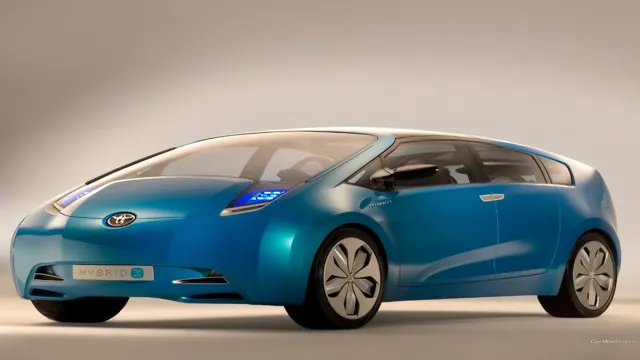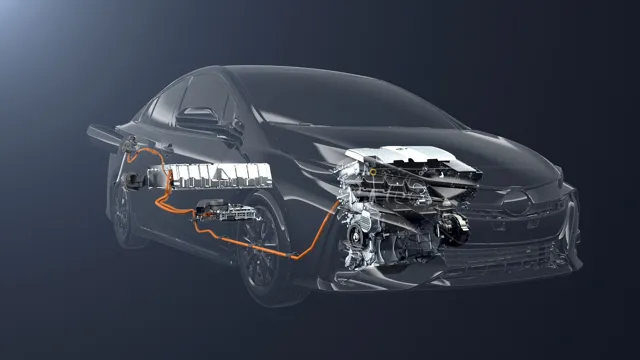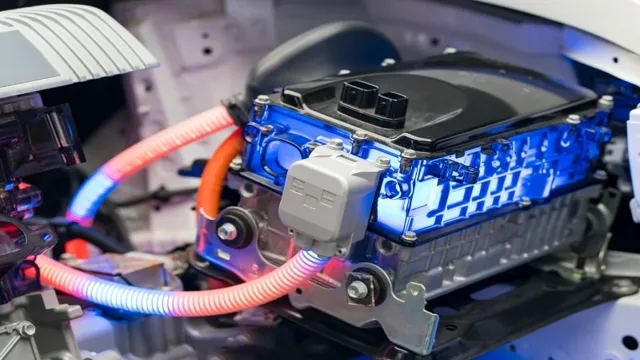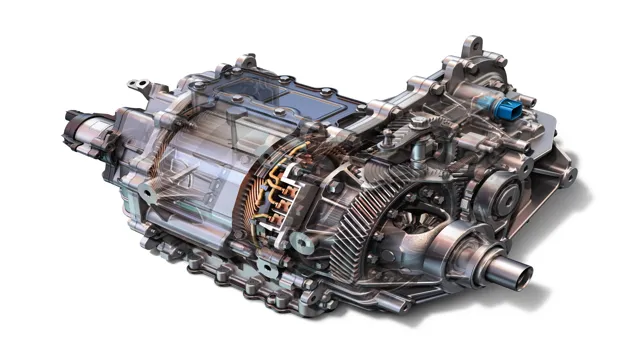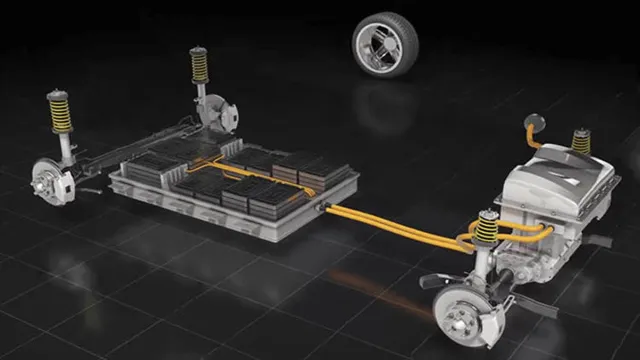Revolutionizing the Road: Exploring the Latest Innovations in Electric Car Technology
Electric cars have come a long way since their inception. In recent years, we have seen Electric Car Innovations that have revolutionized the automotive industry. With growing concerns over climate change and the need to switch to a cleaner mode of transportation, electric cars have become increasingly popular.
With a greater focus on sustainability and innovation, researchers and engineers have been busy developing new technologies to enhance the performance of electric cars. The advancements in battery technology have led to greater range and faster charging times. Moreover, manufacturers are experimenting with wireless charging, which could change the way we think about car refueling.
Another major innovation is the implementation of autonomous driving capabilities in electric cars. With advanced sensors and software, these cars are able to self-drive, making them an attractive option for those who prefer a hands-free driving experience. This is set to revolutionize the transportation industry, as it will reduce the number of accidents and traffic-congested areas.
In addition, electric cars have had an impact on the design of cars in terms of aerodynamics. Manufacturers are now producing more streamlined and aerodynamic designs that help to improve the car’s efficiency. Electric cars have even found their way onto the racetrack, with the creation of the Formula E racing series, which is centered around electric cars.
Overall, electric car innovations have paved the way for a more sustainable and efficient mode of transportation. With ongoing technological advancements, we can expect to see even more impressive developments in the near future. As the demand for electric cars continues to rise, it is clear that the future of the automotive industry is electric.
Battery Technology Advancements
New technology in electric cars has paved the way for innovative battery advancements, making them more efficient, safer, and longer-lasting. One notable breakthrough is the development of solid-state batteries that use electrolytes in a solid state instead of liquid, which avoids the risk of leakage and allows for higher energy density. Another promising discovery is the use of lithium-sulfur batteries, which can potentially store more energy than conventional lithium-ion batteries and reduce costs.
Additionally, advancements in battery thermal management systems have contributed to increased safety and less degradation over time. These enhancements have increased the popularity and range of electric vehicles, making them more accessible to consumers and spurring the growth of the green energy market. With continuous research and development efforts, we can expect even more exciting battery technology innovations to arise, pushing the boundaries of what we thought was possible.
Longer Range Batteries
Advancements in battery technology have led to the development of longer range batteries, which have become a game-changer for electric vehicles. These batteries have higher energy density, allowing them to store more energy and provide longer driving range. Manufacturers have been able to achieve this by using new materials in the battery, such as nickel-cobalt-manganese (NCM) or nickel-cobalt-aluminum (NCA), and improving the battery’s internal structure.
Additionally, advancements in battery management systems and charging infrastructure have also contributed to the rapid progress in battery technology. With these advancements, electric vehicles can now travel longer distances on a single charge, making them more practical for everyday use. The shift towards longer range batteries is an important step in the transition to a low-carbon economy, enabling us to reduce our dependence on fossil fuels for transportation.
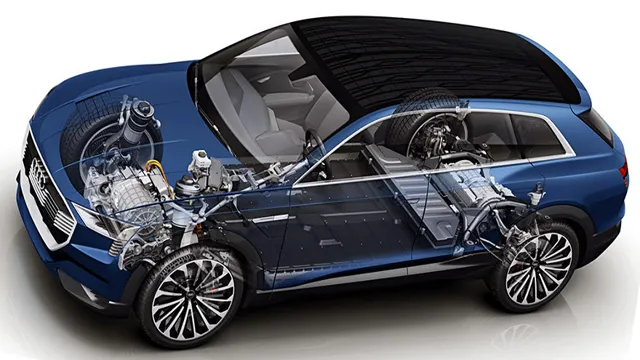
Faster Charging Times
As we continue to rely on our devices for daily tasks and entertainment, it’s become increasingly frustrating to constantly worry about battery life and charging times. Fortunately, advancements in battery technology are alleviating these anxieties. One major improvement is faster charging times.
With new lithium-ion batteries, some devices can now reach 50% charge in as little as 15 minutes, reducing the time we spend tethered to a charger. This is due to a shift towards higher voltage and more advanced battery management systems, which allow for quicker charging without causing damage to the battery. While it’s important to note that not all devices support fast charging, this technology is a game-changer for those who need to fill up their battery quickly.
The days of waiting hours for a full charge may soon be a thing of the past.
AI Driver Assistance Features
New technology in electric cars is revolutionizing the way we drive. One of the most exciting advancements is the implementation of AI driver assistance features. This technology makes driving safer and more efficient by using sensors and cameras to assist in navigating roads and traffic.
These features can include adaptive cruise control, lane departure warning, and parking assistance. Adaptive cruise control adjusts the speed of the car based on the traffic around it, while lane departure warning provides alerts if the car starts to drift out of its lane. Parking assistance helps drivers park with ease, using sensors to detect obstacles and provide guidance.
With these features, electric cars are leading the way in cutting-edge technology that improves the overall driving experience.
Self-Parking Capabilities
Self-parking capabilities are among the most advanced AI driver assistance features available in modern vehicles. These features use sensors and cameras to detect parking spaces and automatically maneuver the car into the spot. Some self-parking systems can even be activated with a smartphone app, making it easy to park in tight spaces or when visibility is limited.
The convenience and safety benefits of self-parking features are hard to deny. Not only can they prevent collisions and fender benders, but they also eliminate the stress and frustration of trying to park in a crowded lot. With self-parking capabilities becoming increasingly common, it’s clear that AI driver assistance features are revolutionizing the way we drive.
Autonomous Driving Options
Autonomous driving is no longer the stuff of science fiction. Thanks to significant advancements in artificial intelligence (AI), cars can now do a lot more than just drive themselves. These days, AI driver assistance features are commonplace and continue to evolve at a blistering pace.
Some of the most popular options include adaptive cruise control, lane departure warning, and parking assist. These features have made driving safer and more enjoyable than ever before. For example, adaptive cruise control takes the stress out of long-distance driving, while lane departure warning keeps you safely in your lane and alerts you if you drift out of it.
Parking assist, on the other hand, makes parking a breeze, even in the tightest of spaces. As these AI-driven features become more sophisticated, we can expect to see more immersive and exciting innovations that will bring us even closer to fully autonomous driving.
Real-time Traffic Updates
Real-time traffic updates are crucial to ensuring a safe and efficient driving experience. With the advancements in artificial intelligence (AI) technology, driver assistance features that use real-time data to provide important information about traffic conditions have become increasingly common. These features use sensors and cameras to analyze traffic flow, provide instant feedback on speed limits, and alert drivers to changes in road conditions.
The goal of these features is to assist drivers in making more informed decisions about route selection, helping to reduce congestion and improve overall safety. With the use of AI, these features are becoming more accurate and effective, ensuring that drivers are able to make the best decisions on the road. As we move forward, we can expect AI-driven driver assistance features to become even more advanced, with real-time traffic updates playing a major role in keeping us safe and informed.
Integration with Renewable Energy
New technology in electric cars has enabled integration with renewable energy sources, such as solar panels and wind turbines. This means that electric cars can not only run on electricity but also generate their own power through renewable energy. With the rising demand for sustainable energy, this integration is a significant step forward in achieving a greener future.
These cars can be charged at home or at charging stations using solar panels or wind turbines, reducing our dependence on traditional fossil fuels and minimizing our carbon footprint. Imagine driving an electric car that not only saves you money on fuel but also generates its own power while you’re on the go. This integration is a game-changer in the automotive industry and will continue to pave the way for a cleaner and more sustainable energy future.
Solar Panels on Cars
Solar-powered cars might seem like a dream for the eco-conscious crowd, but with the integration of renewable energy, this concept is becoming more and more of a reality. Solar panels on cars can harness abundant solar energy, reducing the carbon footprint of vehicles. Imagine a car that doesn’t need to refuel or recharge because it’s powered by the sun.
It’s a possibility that is becoming more feasible with advancements in solar technology. As a result, manufacturers around the world are investing in research to develop more efficient and cost-effective solar cells that can power vehicles. Combining solar power with battery storage and other sources of renewable energy, such as wind power, could help us move towards a more sustainable future.
Although we may not see entirely solar-powered cars anytime soon, the integration of renewable energy into automotive technology is a step in the right direction to reduce greenhouse gases and reduce our dependence on fossil fuel.
Wireless Charging Stations
Wireless charging stations are becoming increasingly prevalent as technology advances, providing a convenient and efficient way to keep our devices powered throughout the day. However, as we continue to shift towards renewable energy sources, it’s important to consider the integration of wireless charging stations with these sustainable solutions. By utilizing solar power or other forms of renewable energy to power these charging stations, we can reduce our reliance on non-renewable resources and lessen our impact on the environment.
This integration not only promotes sustainability but also showcases the potential for technology to work in harmony with nature. Imagine a world where our devices are charged by the sun’s energy, allowing us to stay connected and productive while also doing our part in protecting the planet. It’s an exciting prospect that can be made a reality with the integration of wireless charging stations and renewable energy sources.
Sustainability and Recycling Efforts
The global demand for sustainable energy sources has led to the rapid development of new technology in electric cars. These vehicles have reduced emissions and are becoming more affordable, making them an attractive alternative to traditional gasoline vehicles. Electric cars are equipped with rechargeable batteries, which can be charged both at home and at public charging stations, reducing the reliance on fossil fuels.
The batteries used in these cars are also recyclable, which helps to minimize waste and reduce the environmental impact of vehicle production. With advancements in technology, electric cars are becoming more efficient, with longer battery life and faster charging times. As we continue to strive for a more sustainable future, the adoption of electric cars will play a crucial role in reducing our carbon footprint.
Conclusion
As we enter a new era of sustainable transportation, electric cars continue to advance with the latest technological breakthroughs. With the ability to travel longer distances on a single charge, rechargeable batteries that last longer, and new features such as autonomous driving and advanced safety features, electric cars are becoming more and more appealing to both eco-conscious individuals and auto enthusiasts alike. The future of electric cars is bright, with new advancements and innovations being discovered every day.
So, buckle up and join the ride towards a cleaner and greener future with these revolutionary vehicles.”
FAQs
What is the latest new technology in electric cars?
One of the latest new technologies in electric cars is the use of solid-state batteries, which offer a higher energy density and faster charging times compared to traditional lithium-ion batteries.
Are electric cars more expensive to maintain due to their advanced technology?
While electric cars may have higher upfront costs, they are generally less expensive to maintain than gasoline-powered cars due to having fewer moving parts and requiring less frequent maintenance such as oil changes.
Can electric cars be charged using renewable energy sources?
Yes, electric cars can be charged using renewable energy sources such as solar and wind power, further reducing their carbon footprint and environmental impact.
How far can an electric car travel on a single charge?
The range of electric cars varies depending on the make and model, with some higher-end electric cars having a range of over 300 miles on a single charge. However, it’s important to note that driving style, weather conditions, and other factors can affect the range of an electric car.
